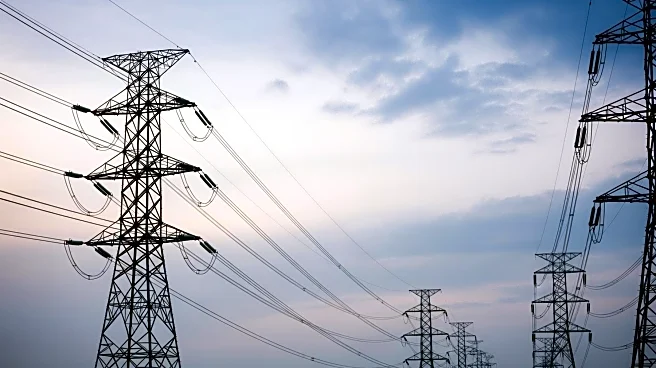What's Happening?
The Federal Energy Regulatory Commission (FERC) recently denied NV Energy's request to allow renewable developers to withdraw from the grid interconnection queue without penalties. This decision follows the rollback of clean-energy tax credits by Congress
and the Trump administration, which has resulted in NV Energy's queue being filled with approximately 23.1 GW of pending projects, including solar, storage, and geothermal initiatives. Additionally, FERC rejected NV Energy's proposal to refund deposits to developers of solar and wind projects that were canceled due to recent federal policy changes. These regulatory decisions come amid NV Energy's implementation of a new rate plan approved by the Nevada Public Utilities Commission, which includes a daily demand charge and tighter solar net-metering rules, sparking public outcry from consumer and solar groups.
Why It's Important?
The FERC's decision to uphold penalties for withdrawing from the grid interconnection queue has significant implications for renewable energy developers in Nevada. It maintains financial pressure on developers who may reconsider their projects due to changes in federal tax incentives. This could slow the growth of renewable energy in the state, affecting Nevada's clean-energy goals. The new rate plan, which includes a daily demand charge, is controversial as it may increase costs for rooftop solar customers, potentially discouraging solar adoption. NV Energy's actions and the regulatory environment highlight the tension between utility companies and clean-energy advocates, impacting the future of renewable energy development and consumer energy costs in Nevada.
What's Next?
NV Energy is likely to face continued scrutiny and opposition from clean-energy advocates and consumers as it implements the new rate plan. The public backlash could lead to further regulatory challenges or legislative actions aimed at protecting solar affordability and advancing Nevada's clean-energy objectives. Additionally, the upcoming Nevada ballot in November 2025 may include measures that could alter utility governance and renewable mandates, potentially influencing NV Energy's operations and strategic direction. Stakeholders will be closely monitoring these developments to assess their impact on the state's energy landscape.
Beyond the Headlines
The regulatory decisions and rate changes underscore broader ethical and economic debates about the balance between utility profitability and consumer interests. NV Energy's monopoly status and its role in shaping Nevada's energy future place it at the center of discussions about fair pricing, renewable energy integration, and the state's commitment to sustainability. The company's actions may set precedents for other utilities facing similar challenges, influencing national energy policy and the transition to cleaner energy sources.















